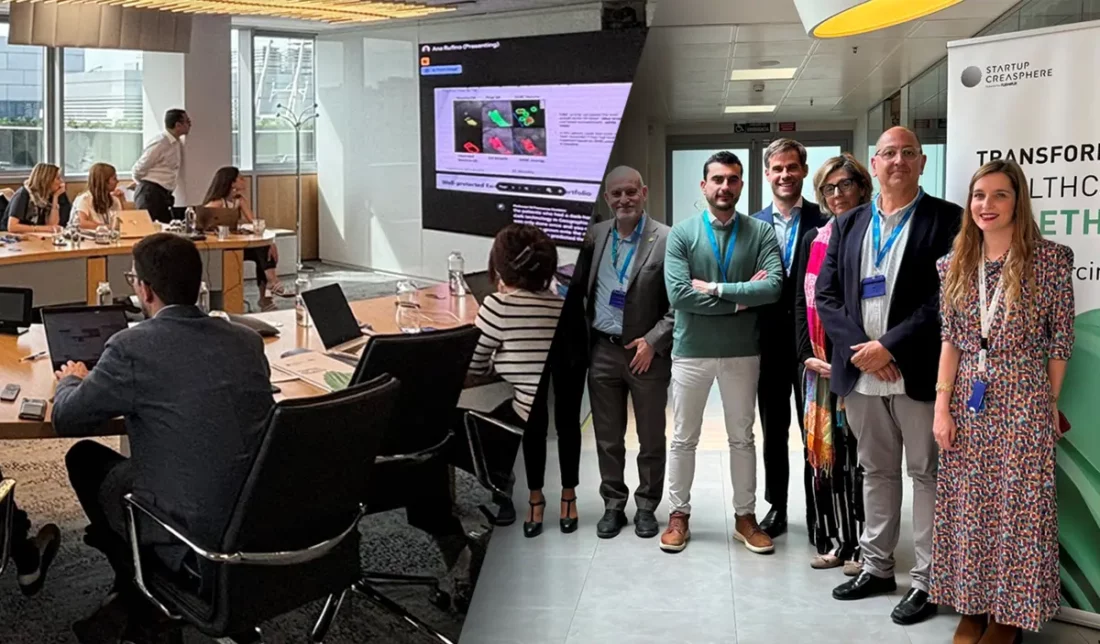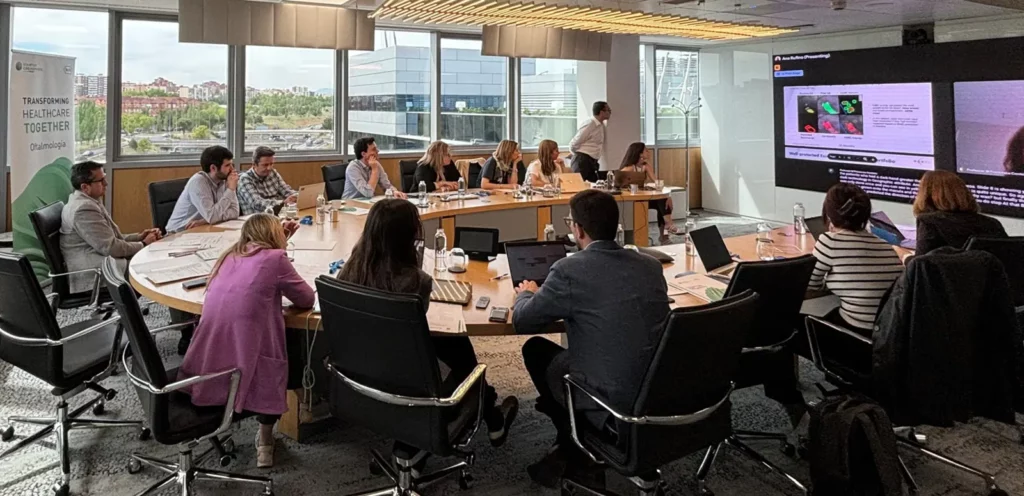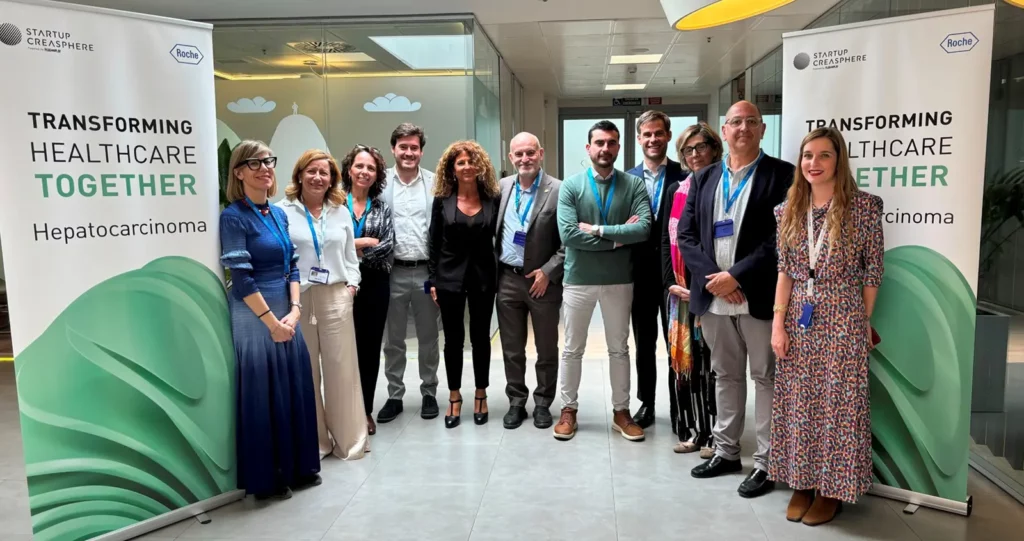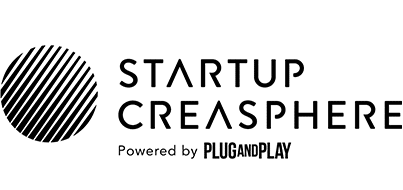
Meet the finalists for the Startup Creasphere Innovation Challenge in Spain
Roche Pharma Spain has already selected the projects that will enter the final stage of this call, focusing this year on the areas of ophthalmology and hepatocellular carcinoma. These are four projects presented by four startups (two Spanish, one from the United Kingdom, and one from Germany) and three projects from the hospital field, presented by the University Hospital of Navarra, the Association of Pharmacists of Primary Care Services of the Balearic Islands (FARUPEIB), and the Miguel Servet University Hospital in Zaragoza.
The projects selected by the expert committee of Startup Creasphere are mostly based on artificial intelligence (AI) developments and propose different innovative solutions that cover areas such as clinical research and management, data analysis, personalized medicine, or improving the quality of life of patients.
The projects were chosen after surpassing their competitors on the Selection Day, a day in which the fifteen startups and eight hospitals that had passed the initial phase of the call (which initially had a total of 56 startup applications) presented their proposals to the expert committee. After the day, and through voting, the members of the expert committee selected four startup projects and three hospital projects.
The projects chosen in the Selection Day will now benefit from the innovation acceleration platform of Plug&Play, and in the case of startups, they will have the guidance of experts in different disciplines-including Roche experts- that will allow them to explore solutions collaboratively, boost investments, share knowledge, and facilitate international expansion. As for the hospital projects, the Plug&Play platform, in collaboration with Roche, will allow them to assess their applicability throughout the clinical and healthcare process of patients and overcome the various obstacles so that they can become a reality.
Once this acceleration process is completed, the results will be validated, and in September, a startup and a hospital project will be designated as winners of this call for each therapeutic area in a session that will be held at the headquarters of Roche Farma Spain. Afterwards, their representatives will have the opportunity to present their proposals at the Expo Day of Startup Creasphere, an international innovation day that takes place twice a year in Munich, Germany.
OPHTHALMOLOGY AREA

These are the startups that have been selected on the Selection Day within the ophthalmology area:
1. Novai (United Kingdom, 2020). They have developed a biomarker called DARC that allows for the detection and imaging of individual stressed cells in the retina and uses this imaging data to predict disease progression. The AI-based platform, along with the biomarker, helps diagnose and predict the evolution of glaucoma and Age-related Macular Degeneration (AMD). It is formulated as an intravenous injection administered to the patient two hours before imaging.
2. DeepEye (Germany, 2021). This platform uses AI to assist doctors in personalizing the treatment of chronic retinal diseases. Specialists can request a second opinion on the treatment design from resident doctors, which takes time and delays the process. This solution allows specialists to obtain that second opinion on the treatment design in a fully automated way.
Other startups that presented their projects on the Selection Day were Mona Health, Check Eye, Revital VisióN, Siloton, and Deepdee.
Regarding hospital projects in the ophthalmology area, the one presented by the University Hospital of Navarra has been selected. It is called NaIA-DMAE, an artificial intelligence product designed to detect and measure retinal fluid in Optical Coherence Tomography (OCT) scans of patients with AMD and Diabetic Macular Edema (DME). At each patient’s review, NaIA-DMAE automatically detects fluid in all OCT scans, differentiating between intraretinal, subretinal, and retinal pigment epithelium detachment, and provides a precise and objective measurement of the total fluid volume in each of the three locations.
The tool can be integrated into the electronic medical records system and compare its data with other patient history data, such as visual acuity or previous treatments.
Also selected in the field of ophthalmology is the Naveta initiative, developed by the Association of Pharmacists of Primary Care Services of the Balearic Islands (FARUPEIB) with the participation of BiblioPRO, an online virtual library of patient-reported outcome questionnaires in Spanish. Naveta is a scientific community that aims to promote value-based healthcare for patients with chronic diseases by implementing processes and strategies related to the electronic delivery of health outcomes and the use of telemedicine tools.
Other hospital projects presented at the Selection Day were Impact of the Consultation on Quality of Life (Servicio Extremeño de la Salud), Risk Calculator for AMD progression (Hospital Clínico Universitario de Valladolid), Algopromia (FARUPEIB Menorca), Auto-tonometry in patients with glaucoma (Hospital Miranza Madrid), and Automatic registry of patients with DME data (12 de Octubre University Hospital Madrid).
HEPATOCARCINOMA AREA

On the other hand, these are the startups that have been selected in the Selection Day within the hepatocellular carcinoma area:
1. Naru Intelligence (Spain, 2017). This Spanish startup provides AI software to hospitals and the pharmaceutical industry to optimize the execution of clinical studies and improve clinical decision-making. They have developed Step Oncology, an AI that reduces serious complications in cancer patients and aims to improve quality of life after hospitalization. The tool ensures data collection and valuable information retrieval without clients losing control, ownership, and data governance.
2. Higia.AI (Spain, 2023). The AI solution of this Spanish startup aims to provide personalized healthcare by analyzing patient data from multiple sources to identify individual risk factors and predict the probability of developing chronic liver diseases and six other diseases. This solution helps patients and healthcare professionals take proactive measures to prevent or manage chronic diseases through personalized recommendations and intervention opportunities, such as lifestyle changes, medication adjustments, or additional check-ups.
Other startups that made it to the Selection Day were Doctor-one, Longenesis, Elem Bio, Physia, Better Medicine, and Sycai.
As for hospital projects, the chosen project is Hepato-Care, developed by the Miguel Servet University Hospital in Zaragoza. It is an integrated clinical management system for patients with advanced hepatocellular carcinoma undergoing systemic treatment. The tool includes an app and a subprogram integrated into the electronic medical records system, allowing for automated appointment management to optimize consultation times and automatically reschedule appointments if necessary. Through the app, patients can view their appointments, access updated information, and directly contact the care unit.
When selecting the projects, the jury of experts, whose members can be found on the Startup Creasphere website, took into account several weighted criteria such as the quality of the solution, the team, the impact on the patient’s life, and the benefit for hospitals and healthcare professionals.”

